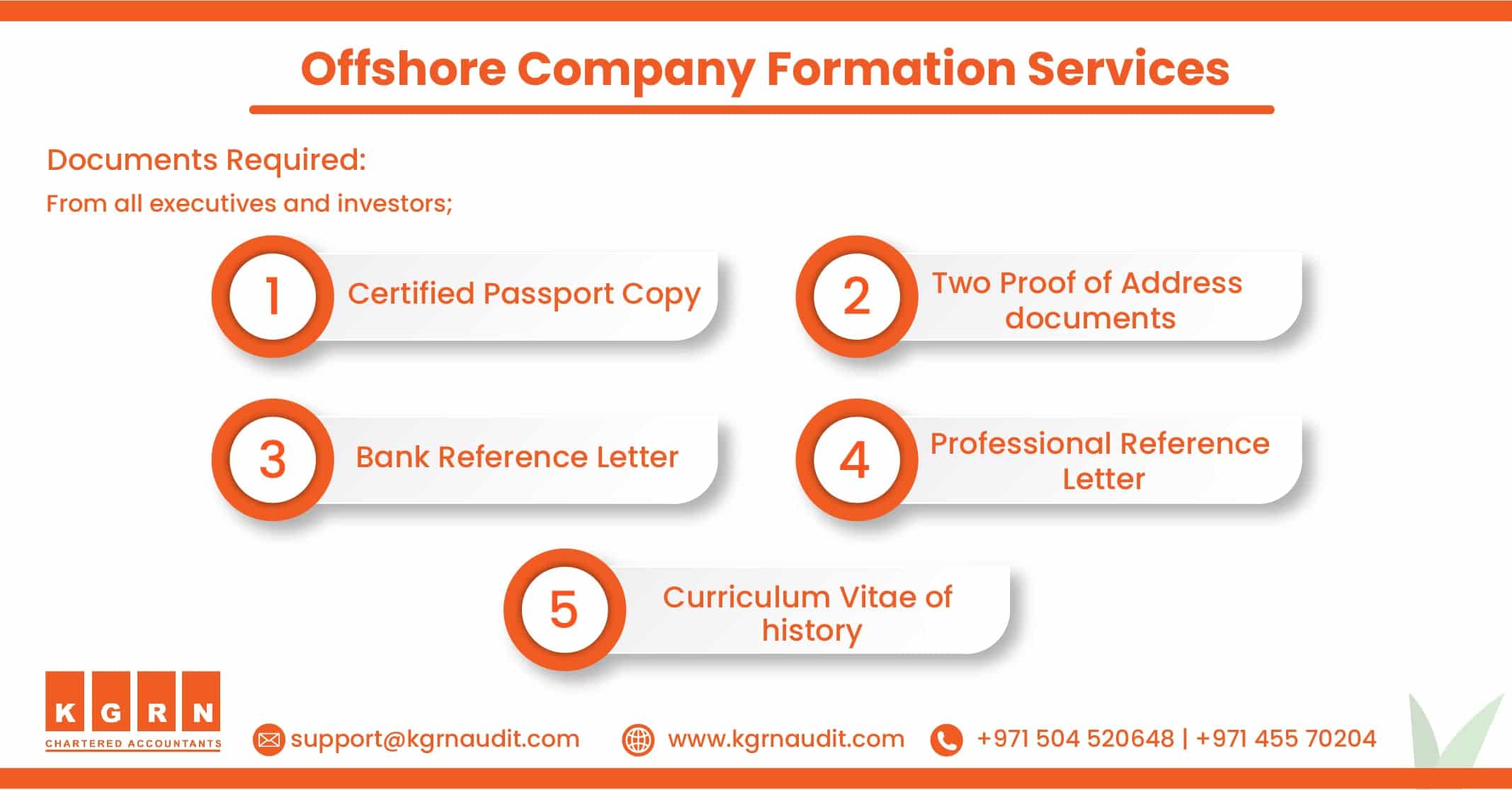Expert Tips for Navigating offshore company formations With Confidence
Discover the Importance of Offshore Company Formations for Global Organization Development
Offshore company developments have ended up being a crucial approach for companies aiming for global growth. These entities supply significant benefits, consisting of tax optimization and enhanced personal privacy. However, the intricacies surrounding lawful and governing frameworks can be difficult. Business must browse these details to maximize their possibility. Recognizing the core elements of offshore operations is essential for those looking to enhance their international existence and shield their possessions. What certain advantages can business get from this method?

Comprehending Offshore Firm Formations
Although many business owners look for chances for global organization expansion, understanding offshore company developments is essential for traversing this facility landscape. Offshore company development describes the procedure of registering a business in a foreign jurisdiction, often for factors such as tax performance, governing advantages, and possession defense. Entrepreneurs have to take into consideration different factors, including the legal needs of the selected jurisdiction, the ramifications of local legislations, and the advantages of various organization structures. Additionally, expertise of international treaties and conformity with global monetary regulations are considerable. Navigating this terrain calls for cautious preparation and calculated insights, as the wrong decisions can result in legal complications or monetary pitfalls. By realizing the subtleties of offshore company developments, business owners can place their companies successfully for international operations, ensuring they are well-prepared to capitalize on the possibilities provided by a global market.
Secret Advantages of Establishing an Offshore Entity
Developing an offshore entity supplies various advantages that can greatly improve a company's operational effectiveness and financial efficiency. One substantial advantage is enhanced adaptability in handling global operations. Offshore entities usually permit for streamlined procedures that promote quicker decision-making and responsiveness to market changes (offshore company formations).Additionally, organizations can get to international markets extra conveniently, leveraging neighborhood expertise and resources that may not be available in their home country. This can cause enhanced competition and innovation.Furthermore, establishing an overseas company can offer boosted privacy and privacy for stakeholders and owners. This protection can aid safeguard delicate info from potential competitors.Lastly, services may experience decreased regulatory worries and compliance costs, enabling them to designate sources better. Overall, these key benefits make offshore entities a critical option for services intending for global expansion and enhanced operational effectiveness

Tax Optimization Methods Through Offshore Frameworks
Offshore frameworks not just boost operational adaptability and accessibility to worldwide markets yet additionally existing significant possibilities for tax optimization. Companies can take advantage of positive tax territories to decrease their total tax obligation concern, permitting reinvestment and growth. By developing an overseas business in a tax-efficient area, organizations can benefit from minimized business tax prices, tax exemptions on certain kinds of income, and improved property protection.These frameworks can help with tax preparation strategies such as earnings shifting, where earnings are designated to low-tax jurisdictions, and making use of holding business to take care of aristocracies and rewards properly. Furthermore, utilizing overseas accounts can streamline cross-border transactions, decreasing withholding tax obligations and improving money flow.
Enhancing Privacy and Discretion in Organization Operations
Just how can services properly protect their sensitive details while steering through the intricacies of worldwide procedures? Offshore company formations provide a strategic avenue for boosting privacy and privacy in service tasks. By establishing entities in territories with strong personal privacy laws, business can restrict the exposure of their monetary and functional information. This not only secures proprietary info but also minimizes dangers related to information breaches and unauthorized disclosures.Utilizing offshore frameworks enables organizations to preserve anonymity in ownership and transactions, which is essential in open markets. Additionally, these formations typically give innovative data defense regulations, ensuring that sensitive details is secured from prying eyes.Employing robust security actions, such as file encryption and secure communication channels, even more enhances the privacy of company procedures. By integrating these techniques, companies can confidently browse the worldwide landscape while maintaining their critical info and sustaining a competitive side.
Browsing Legal and Regulative Factors to consider for Offshore Firms
Navigating the complexities of worldwide service needs a keen understanding of the legal and regulative frameworks that govern overseas business. These frameworks vary greatly throughout territories, demanding mindful evaluation to assure compliance. Local business owner must understand regional legislations pertaining to tax, reporting obligations, and business administration to avoid legal pitfalls.Additionally, regulations bordering anti-money laundering (AML) and know-your-customer (KYC) methods play a vital role in maintaining the authenticity of overseas entities. Failing to web adhere to these guidelines can lead to extreme fines, including criminal charges.Engaging with legal experts that concentrate on offshore firm development is frequently a good idea, as they can navigate the detailed landscape of international legislation. By continuing to be notified regarding the developing governing atmosphere, services can purposefully leverage overseas structures to maximize this contact form procedures while lessening threats. Eventually, an extensive understanding of lawful factors to consider is vital for successful global growth.
Regularly Asked Concerns
For how long Does It Require To Establish an Offshore Firm?
The duration to develop an offshore firm varies by jurisdiction, commonly varying from a couple of days to several weeks. Aspects influencing this duration include particular regulatory requirements, documentation prep work, and the effectiveness of regional authorities.
What Are the Prices Connected With Offshore Firm Development?


Can Individuals From Any Country Type an Offshore Firm?
People from various nations can indeed form offshore firms. Details regulations, demands, and limitations might vary by jurisdiction, necessitating complete research study to guarantee compliance with local regulations and worldwide requirements prior to continuing.
Exist Any Kind Of Continuous Conformity Requirements for Offshore Firms?
Ongoing compliance demands for overseas firms differ by jurisdiction. Usually, these include yearly filings, tax obligation statements, and preserving accurate records. Failure to comply can result in charges, making adherence essential for organization sustainability and legal standing.
Exactly How Can I Discover a Trusted Offshore Solution Provider?
To discover a respectable offshore provider, one ought to investigate online reviews, verify credentials, and seek recommendations from relied on company associates. Furthermore, contrasting solutions and pricing can assist guarantee a trusted option for overseas business development. Offshore business formations have actually come to be a vital technique for organizations intending for international development. Numerous business owners look for chances for international organization expansion, understanding offshore company developments is essential for traversing this facility landscape. Offshore company formation refers to the process of signing up a business in a foreign jurisdiction, often for reasons such as tax obligation effectiveness, regulative advantages, and possession protection. By establishing an overseas business in a tax-efficient area, companies can benefit from reduced company tax rates, tax obligation exceptions on particular kinds of revenue, and boosted property protection.These frameworks can assist in tax planning methods such as earnings shifting, where profits are alloted to low-tax jurisdictions, and the use of holding business to handle aristocracies and returns properly. Maneuvering the complexities of international service calls for a keen her response understanding of the governing and lawful frameworks that control overseas companies.